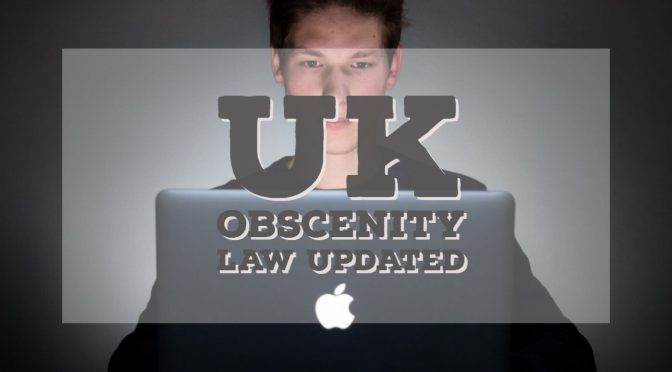Yesterday, the Crown Prosecution Service announced that they would be loosening their obscenity guidelines to formally allow – for the first time – strong fetish material, so long as it features consenting adults. This news was greeted with joy by fetishists and campaigners. But it was also an inevitable step towards stronger censorship of the Internet by the UK government.
Four years ago, the sex worker activist Charlotte Rose organised perhaps the most entertaining protest ever seen in the UK: the face-sitting protest, outside Parliament. I was one of the speakers at the event, which was called in response to a sly act of government censorship. Without even calling a parliamentary vote, the government had extended DVD pornography rules so they were now applied to Internet video.
Among the acts now banned were “dangerous” acts (hence face-sitting, which could in theory suffocate someone – I kid you not), watersports, female ejaculation, and fetish material including most spanking, sado-masochism and bondage. At a stroke, thousands of porn sites (including all of the free “tube” sites) became technically illegal. You probably didn’t notice, as nothing actually happened. The tubes, and many other sites, continued to stream face-sitting, spanking and squirting material into the UK, and British consumers continued to watch it.
The law change was a failed attempt by the media regulator ATVOD to gain the power to close down overseas websites. Their cunning plan was to approach banks, point out that they were clearing payments for content that was illegal in the UK, and ask them to withdraw their services from the offending sites. The banks, however, didn’t see much of a problem. The material was legal in the US, and the new law, having been sneaked in by the back door, didn’t have much standing. The regulator had failed, and porn had won.
ATVOD was later scrapped, and Ofcom, the mighty media regulator (and censor) took over the online remit. This time, there would be no half-measures. In 2017, the Digital Economy Act was passed. For the first time, a British state censor would have the right to order websites to be blocked if they didn’t conform to UK regulations. The Act allowed porn sites to be blocked on two grounds:
- If they didn’t verify the ages of visitors, or
- If they contained extreme material.
Now, porn businesses based in America or elsewhere would surely have to pay attention. And they did. Mindgeek (the giant owner of Pornhub and other leading tube sites) began to play ball, and announced it would be conforming to the new UK law. This gave them two massive headaches:
- How to verify the ages of millions of UK visitors, and
- What to do about all the material that was US-legal but UK-illegal.
The first problem has occupied the industry for some time (and set champagne corks popping in the boardrooms of age verification companies). But not much attention has been paid to the second problem.
The problem now was that big porn companies have accepted (albeit reluctantly) that they will enforce age verification for UK customers (hint – you can use a VPN to mask your location). But why would Mindgeek and others bother to enforce the age verification rule if their content is illegal in the UK anyway?
If the new British censor – the BBFC – was unable to bring the porn industry on-board with its new regime, it would lose all credibility. Unless Mindgeek signed up, the new censorship law (due to go live this coming April) would fail. So, just for once, the interests of the porn industry and the British government coincided with those of the fetish community. In a nutshell, the change to the law transformed an unworkable system of censorship into a viable one.
So the timing of yesterday’s announcement is little surprise: unless UK obscenity laws were brought into line with American ones before April, the new censorship system would be a flop. It is of course wonderful (and long overdue) news that UK porn users will no longer be criminalised for enjoying a bit of face-sitting porn in the privacy of their own homes. But like much good news from the British authorities, it came with a catch.
